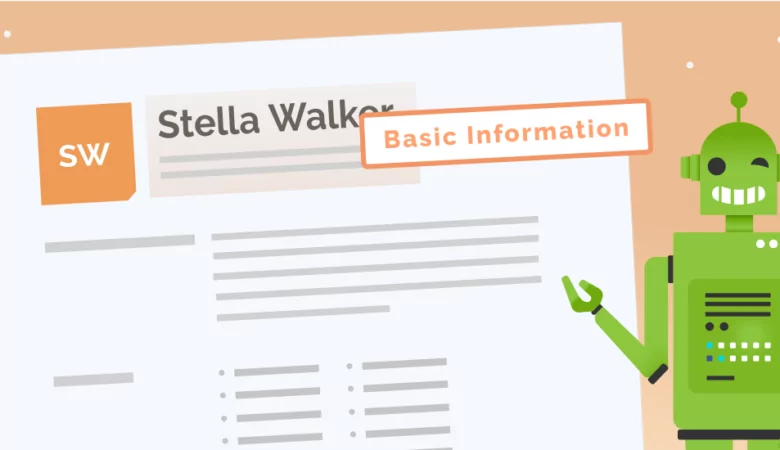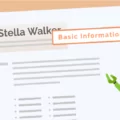A better resume makes it easier for you to find a great auditing job. Here’s a resume example and tips to help you write the best possible auditor resume.

Stunning Auditor Resume Examples for You to Use This Year
Auditor Resume Examples
A financial auditor plays an incredibly important role in any company’s structure. Tax records can be complicated, and the ability to maintain tax compliance is critical to ensure that a company doesn’t end up with a hefty fine. Here’s how to structure your auditor resume to increase your chances of landing your next auditor job.

What To Highlight in an Auditor Resume
There are many potential skills that you might want to highlight in your auditor resume. The best way to decide which skills you should highlight is to read through the job description and see what the hiring manager emphasizes in the posting. You can then match these key terms and phrases with your own skills and background, and feature them throughout your resume. This way, you can show off specific knowledge and skills that relate to the job.
Structure of an Auditor Resume
Begin your resume by choosing a resume format. Your options are chronological, functional, and combination. The resume format you choose depends on what you want to emphasize.
A chronological resume format highlights your experience, so someone with a long work history will choose this format. A functional resume format showcases skills. A person who has recently graduated and/or has little work experience should choose this format. And finally, a combination resume format highlights both skills and experience. This format is best for those who have employment gaps or are changing careers.
Once you’ve selected a resume format, you can move on to adding your information in each of the following resume sections.
Header
Your resume header includes your contact information. This includes your phone number, email address and professional social media links, like your LinkedIn profile.
Resume summary or objective
The first two-three sentences of your resume should give a hiring manager a great idea of what they will find in your resume. If you have several years of work experience, write a resume summary, which specifically goes over that experience and highlights your past achievements. If you have little to no work experience, write a resume objective, which focuses on your skills and knowledge.
Skills
In your auditor resume, you’ll need soft skills, which are generalized skills that can apply for all sorts of jobs, as well as hard skills, which are the specific skills you need to be an auditor. Here are a few bullet points you could include in your resume skills section:
- Knowledge of financial statements/financial reports
- Internal and external auditing
- Generally Accepted Accounting Principles (GAAP)
- Generally Accepted Auditing Standards (GAAS)
- Knowledge of regulatory requirements
- Ability to describe audit findings
- Assessing internal controls
- Problem-solving
- Ability to stick to auditing standards
- Communication
- Knowledge of cost savings
- Keen eye to spot discrepancies
- Knowledge of Microsoft Excel
- Risk management
- Ability to access accounting records and financial records
- Performance of audit planning
- Creation of audit procedures and a recurring audit program
- Ability to take corrective actions
- Information systems knowledge
- Ability to source liabilities
- Teamwork with senior management
- Time management
Your skills section will likely be very robust, as it can be a very helpful way to narrow down exactly the type of auditing you do.
Work history
Any work history in the realm of auditing and financial planning can help you fill out your resume. Here are a few job titles that you should highlight:
- Certified internal auditor
- External auditor
- Compliance auditing
- Senior auditor
- Staff auditor
- Certified public accountant (CPA)
If you did any of this work, or other jobs that make use of important skills that relate to auditing, feature them in your experience section. Be sure to list all your experience in reverse-chronological order, with your most recent job listed first, along with bullet points explaining your top duties and accomplishments in each role.
Education
The required education for an auditor may vary. It’s often best to have a bachelor’s degree in a financial field, such as business administration. Include as much college experience as you have, including coursework that relates to financial audits. Only feature your top academic credentials – for example, you don’t need to list your high school experience if you have a college degree.
Do’s and Don’ts for an Auditor Resume
Keep these tips in mind when writing your auditor resume:
Do:
- Match your resume to the job posting. Ensure your key skills, certifications, and other qualifications all match up to the way the job description discusses their ideal candidate.
- Highlight the major relevant experiences you have. This can include volunteer work, internships, or academic work; many types of experience create a great worker.
- Ensure your resume and cover letter have similar design schemes. The ResumeNerd resume builder and cover letter builder can help you match up the designs of both.
Don’t:
- Use passive language. Instead, opt for action words, with phrases like “created” or “Initiated” rather than the passive “was tasked with” or “responsible for.”
- Be vague. You want to be as precise as possible with your past experiences, using specific metrics and experiences to showcase why you’re the right person for this job.
- Focus on just one section of your resume. All resume sections are important, so use the resume examples from ResumeNerd to ensure every section looks right.
FAQ: Auditor Resumes
Even though your professional experiences will by and large be in your resume, a cover letter is still an important part of your auditor application. It gives a recruiter better insight into your knowledge and your professional experience, and it allows you to elaborate on aspects that might not make sense in your resume by itself. Use the ResumeNerd cover letter builder to make this an easier process.
Although work experience is a big part of any resume, you don’t need a ton of experience to be an auditor. If you find that you have less experience than some of your peers, your best option is to focus on your skills and training. You can also list volunteer work, academic work, and internships to showcase auditing experience in different ways.
Before you apply for any job, it’s a good idea to personalize your resume to the job description that you’re applying for. The perfect resume for one job won’t be the best resume for another. Read through the description for the auditor job to understand what the recruiter is looking for, then target those needs with the summary, skills and experience sections in your resume.








